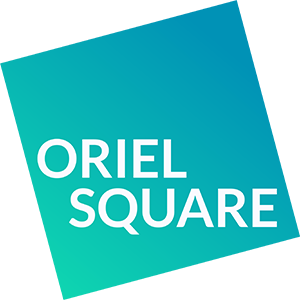Liz Cremona-Howard is a publisher at Oriel Square with specialist expertise in primary English and phonics.
Every child has the right to read. But what and how children read are changing. In the classroom, this presents new challenges and opportunities. How we approach reading must incorporate the shifting social factors that shape how each child learns and experiences reading.
With this in mind, and ahead of the 2026 National Year of Reading, I’m looking forward to attending the NLT’s Reconstructing Reading conference. I’m especially looking forward to the chance to hear from literacy education advocate, researcher and author, Timothy Shanahan. I’ve been following the commentary around his book, Leveled Reading, Leveled Lives (disclaimer: I haven’t read it yet) and it’s been making me rethink everything I thought I knew about learning to read. I’ve spent much of my professional life working on some sort of levelled readers, so I’d really like to know if it was worthwhile!
An attack on the science of reading?
Shanahan isn’t attacking decodable readers – he’s a strong advocate for the science of reading. Instead, he’s taking aim at the practice of using levelled texts once decoding is secure. As he wrote in a 2024 blog, once kids have learned to decode, “It makes no sense to teach everybody as if they were 5-year-olds.”
Is he right? Reading progressions based only on phonics don’t pay sufficient attention to all the other things that make reading harder or easier. Factors like sentence lengths and structures, familiarity of vocabulary, text organisation, and enjoyment of the content. Older systems for levelling text such as Book Bands, although rightly criticised for not taking decoding into account, understood most of these factors really well.
Bridging phonics to fluency
While a child might not need the scaffolding of a levelled reader when they are completely fluent, there’s a gap between the end of teaching phonics for reading and the securing of fluency when some scaffolding is needed. A child may know all the grapheme-phoneme correspondences but still struggle with recalling them quickly enough to tackle a long, complex sentence. And if they’re using so much working memory for decoding, it’s going to be challenging to understand and absorb new vocabulary as well.
The question of enjoyment – does levelled have to mean boring?
We know as adults that reading for pleasure doesn’t always mean reading the most difficult text we’re capable of. *Hides The Hallmarked Man under the desk*. Why should that be any different for children? Easy reads can be fun reads! Of course there’s no place for boring, formulaic levelled readers, but levelling shouldn’t have to mean dull texts. I’ve worked with many authors who can write both ‘trade’ picture and chapter books, and levelled readers. These authors couldn’t write a boring book if they tried. What they can do is follow a brief that sets out target word counts, sentence length and vocabulary in order to make the book an easier and less intimidating read for a novice.
Class teaching vs. independent reading
Going back to the commentary around Shanahan’s book, we should consider if it makes a difference how the books are used? Shanahan’s case seems to be focussing on books that are used for class teaching, not independent reading. In a 2020 article, he writes:
“I recommend … having students reading really demanding texts when the teacher is close by and ready to help, and less demanding ones when on their own or when a teacher just isn’t going to be available.”
It’s a persuasive argument that in class, the teacher can provide the scaffolding. This teacher scaffolding could help the child keep the sense of the complex sentence, or explain the tricky vocabulary. So a text that’s read aloud in class doesn’t need to be levelled, because the teacher can provide the scaffolding to make it accessible for every child. This sounds harder than teaching with levelled readers, but with the potential for rich rewards.
I’ll be attending Timothy Shanahan’s session on 17th November, hoping to hear that we can keep levelled readers for independent reading.
Supporting high-quality, effective literacy education
Get in touch at contactus@orielsquare.co.uk to learn more about how Oriel Square can help your reading products have an impact in the classroom and beyond.

